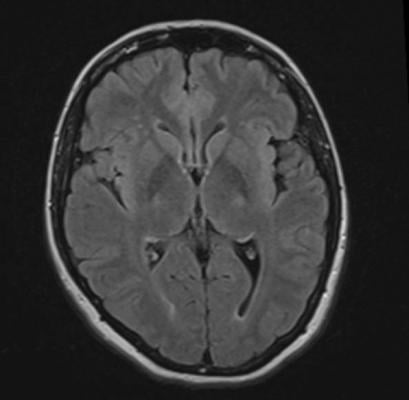
August 29, 2012 — New magnetic resonance imaging (MRI) research shows that changes in brain blood flow associated with vein abnormalities are not specific for multiple sclerosis (MS) and do not contribute to its severity, despite what some researchers have speculated. Results of the research are published online in the journal Radiology.
“MRI allowed an accurate evaluation of cerebral blood flow that was crucial for our results,” said Simone Marziali, M.D., department of diagnostic imaging, University of Rome Tor Vergata, Rome.
MS is a disease of the central nervous system in which the body’s immune system attacks the nerves. There are different types of MS, and symptoms and severity vary widely. Recent reports suggest a highly significant association between MS and chronic cerebrospinal venous insufficiency (CCSVI), a condition characterized by compromised blood flow in the veins that drain blood from the brain. This strong correlation has generated substantial attention from the scientific community and the media in recent years, raising the possibility that MS can be treated with endovascular procedures like stent placement. However, the role of brain blood flow alterations on MS patients is still unclear.
To investigate this further, Italian researchers compared brain blood flow in 39 MS patients and 26 healthy control participants. Twenty-five of the MS patients and 14 of the healthy controls were positive for CCSVI, based on color Doppler ultrasound (CDU) findings. The researchers used dynamic susceptibility contrast-enhanced (DSC) MRI to assess blood flow in the brains of the study groups. DSC MR imaging offers more accurate assessment of brain blood flow than that of CDU. MRI and CDU were used to assess two different anatomical structures.
While CCSVI-positive patients showed decreased cerebral blood flow and volume compared with their CCSVI-negative counterparts, there was no significant interaction between MS and CCSVI for any of the blood flow parameters. Furthermore, the researchers did not find any correlation between the cerebral blood flow and volume in the brain’s white matter and the severity of disability in MS patients.
The results suggest that CCSVI is not a pathological condition correlated with MS, according to Marziali, but probably just an epiphenomenon — an accessory process occurring in the course of a disease that is not necessarily related to the disease. This determination is important because, to date, studies of the prevalence of CCSVI in MS patients have provided inconclusive results.
“This study clearly demonstrates the important role of MRI in defining and understanding the causes of MS,” Marziali said. “I believe that, in the future, it will be necessary to use powerful and advanced diagnostic tools to obtain a better understanding of this and other diseases still under study.”
For more information: www.radiology.rsna.org


 February 13, 2026
February 13, 2026 









